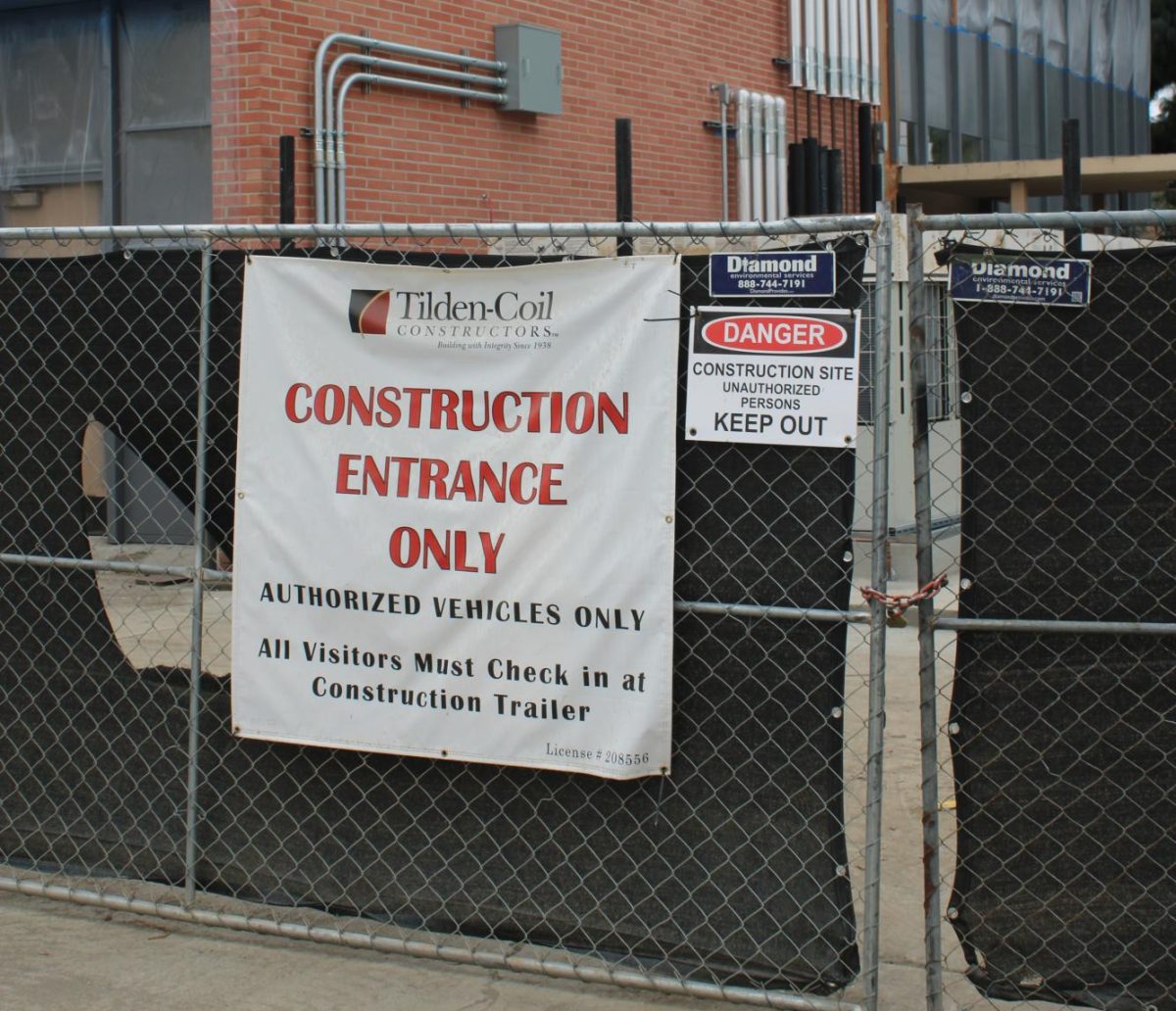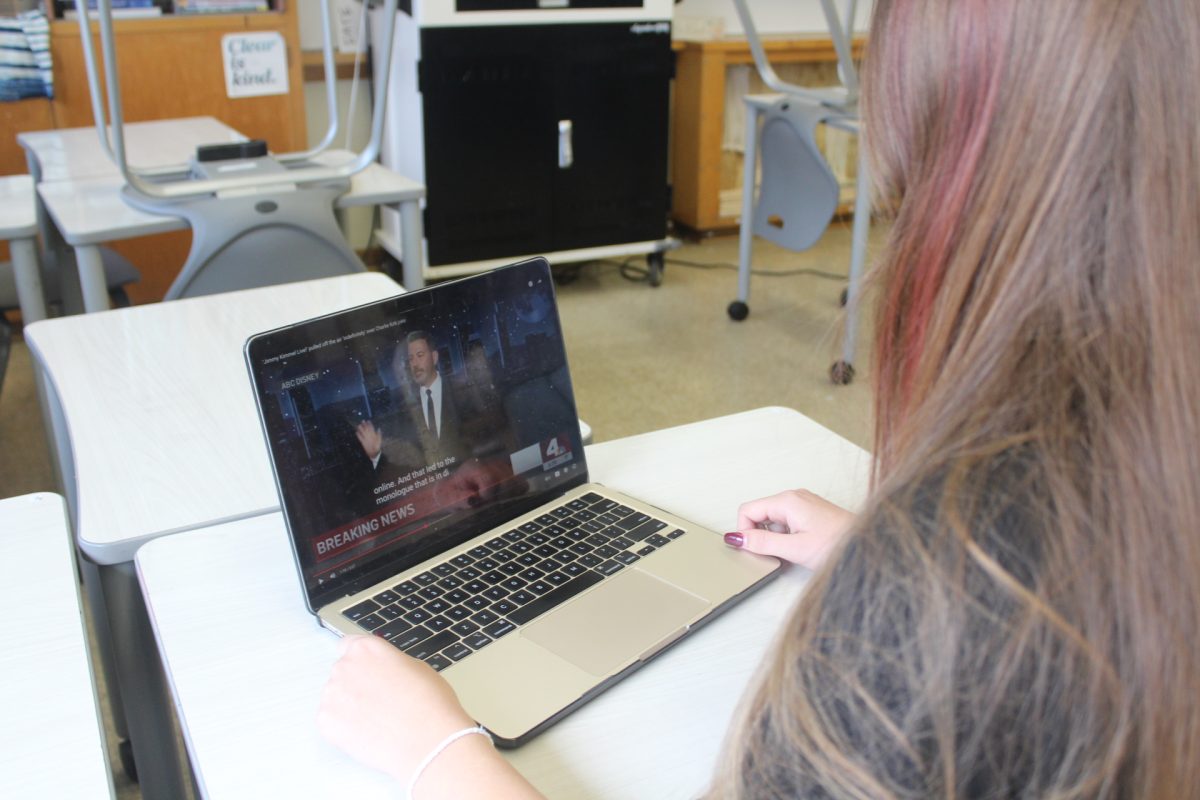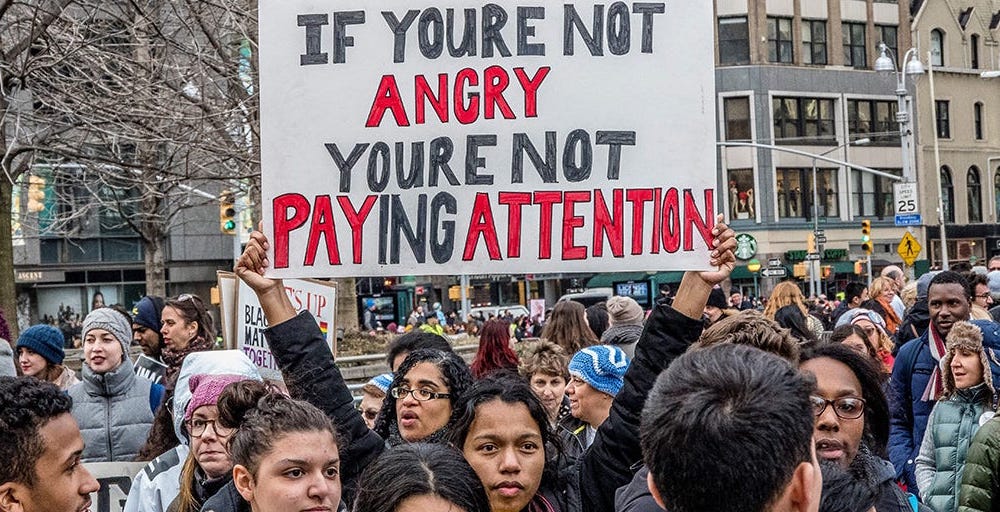A couple of months into President Trump’s second term, his administration obliged Harvard University, one of the oldest institutions in the U.S., to change its policies in return for federal funding.
These demands (including: getting rid of diversity programs, revisions on admission processes, and defunding any groups on campus that promote “criminal activity and antisemitism”) followed the ongoing Pro-Palestine protests beginning in the Fall of 2023 on the Harvard campus.

Although there are some instances of antisemitic rhetoric and actions stated at these protests, “The narrative that the Gaza solidarity encampments are inherently antisemitic is part of a decades-long effort to blur the lines between criticism of Israel and antisemitism,” the letter signed by 750 Jewish students read.”
The Trump administration says that these demands are a direct effort to prevent antisemitism on campus.
The administration’s demands have led to a lawsuit with 2.2 billion dollars of research funds on the line. The money Harvard usually receives, now frozen, funds medical, scientific, environmental, and many other research studies. This freeze has affected the university in many ways, from having to allocate “central” funds from the school’s central budget, pausing many study projects.
Antisemitism is a form of prejudice in which hatred is expressed toward Jewish people. In response to President Trump’s accusations of discrimination, Alan Garber, Harvard President, later responded to the implications of the accusation by expressing that, “We will continue to fight hate with the urgency it demands as we fully comply with our obligations under the law. That is not only our legal responsibility. It is our moral imperative.” This statement confirmed Harvard’s commitment to not defending antisemitism or any illegal actions.
On Apr. 21, Harvard filed a lawsuit challenging the Trump Administration, including the Department of Education and the National Institutes of Health’s “unlawful and unconstitutional” actions.
Garber writes, “No government, regardless of which party is in power, should dictate what private universities can teach, whom they can admit and hire, and which areas of study and inquiry they can pursue.”
This relates to the government’s funding freeze by limiting the resources Harvard has and is able to educate their students with.

Since Harvard is a private institution and, by law is entitled to academic freedom and institutional autonomy, this case has a lot to do with the First Amendment of the Constitution.
“Congress shall make no law respecting an establishment of religion, or prohibiting the free exercise thereof; or abridging the freedom of speech, or of the press; or the right of the people.”
The First Amendment is the highest law referring to freedom of speech. This important law has been a key stone to America’s government, allowing citizens’ freedoms.
On the basis of the First Amendment, AP Government and Politics teacher Dr. Rudman said that, “The first amendment is not absolute, if speech has harmful effects, the government may take action to restrict that expression in order to preserve safety.”
Although Harvard is arguing that the Trump administration infringed on their First Amendment rights to both liberty of speech and intellectual freedom, if the court believes they are having “harmful effects” on their students, the decision could side with the Trump administration.
This case between Harvard and the current federal government highlights not only questions about the power our government holds, but also academic freedom and its recent tension with political polarization.































Alexis Copeland • Jun 4, 2025 at 10:10 am
On May 27, 2025, Hana Word wrote an article titled “Harvard Lawsuit: Free Speech?”. I
think Hana Word chose a great topic to speak on, as it should be known what’s going on as
Harvard is fighting for the most important thing. Freedom of speech, the most important first
amendment. That shouldn’t be violated. Hana Word shows how the trump administration runs
over the amendment and the demands they made, that’s unlawful to
The pictures Hana Word used put more emotion to the article, as the protests show that
people care and won’t stand for the Trump administration. Hana word also mentions the goal of
the Trump administration to prevent antisemitism and how this led to Harvard lawsuit as it
affects the school in more harmful ways than good. I think this article really brings awareness to
what’s really going on. And this shows people’s rights on the constitution that can’t be violated.
Overall, I think Hana Word spoke well on the topic of the Harvard Lawsuit. Successfully
addressed the point of the lawsuit.
Anthony Torres • May 30, 2025 at 1:15 pm
Dear Corydon Editor,
On May 27, 2025, Hana Word wrote an article titled “Harvard Lawsuit: Free Speech?”. In it she explains how Harvard is at risk of losing a ton of money because of Trump’s Administration telling them to change policies. These policies are in regards to the Israeli Palestinian protest and how they want to keep the campus safe by taming these protests. This in turn made Harvard sue the government for going against the First Amendment and freedom of speech.
This article goes into depth about the current situation of both the massive protest over the war on Gaza and the conflict many institutes have with the federal government. With President Trump passing many laws and regulations that many are saying are unconstitutional. Therefore many of these institutions are fighting back with Harvard being one of them. Word emphasizes this huge battle the US is having with Harvard as the main example. She also succeeds in showing both sides of the debate and how some see it as taking away our freedom of speech while others see it as justifiable by the harm that is as a result from these protests.
Overall, Word does a great job of describing the issue at Harvard and the greater conflict it is a part of. With sufficient background and views on both sides Word delivers a compelling article about a serious problem to the reader.
Sincerely,
Anthony Torres
John Stout • May 30, 2025 at 11:16 am
On, May 27, 2025, Hana Word wrote an article titled “Harvard Lawsuit: Free Speech”. This article goes into detail about how President Donald Trump is trying to revoke diversity programs, and as Harvard refuses to stand down, Trump is refusing to give federal funds to the school. This article uses great stats to size the problem at hand when it comes to funds for the school. The article also provides plenty of background information as this level of politics can only really be known if you’re looking for it. There are also very helpful images that demonstrate the tension via protests between the Israelis and Palestinians. I honestly think that there isn’t anything bad about this article, it provides stats, important pictures providing evidence of tension, and as well as background information on the matter if you aren’t familiar with what is at hand, making this article a concise yet easily digestive article that provides a sufficient amount of information that has little to no bias compared to large news stations.
Brandon Flores • May 30, 2025 at 9:52 am
May 30, 2025
Dear, Corydon Editor
Word’s piece, “Harvard Lawsuit: Free Speech?” is a relevant and intellectual discussion about the legal and ethical conflicts between academic freedom and governmental authority. The article sheds light on the complexities of the lawsuit between Harvard and the Trump administration, With regard to First Amendment rights, and how they interplay with contemporary political and social matters.
The article fairly puts forth both sides. Harvard’s position within free speech and institutional autonomy is told, whilst the federal government’s view in stopping antisemitism has equally been given attention. The quotes of President Alan Garber and AP Government instructor Dr. Rudman have furthered the legitimacy and broken down the constitutional issues to give the readers a better understanding.
More details on how the government defines “antisemitism” and whether the protests at Harvard have engendered verifiable incidents of hate speech or violence would aid in analyzing if the administration’s demands are proportionate or politically motivated. Besides, giving voice to the student protesters or researchers affected would humanize the story and add some emotional weight.
The piece raises the question of the possible precedent this case could set: if federal funding is us
Sincerely,
Brandon Flores
Lily Gonzalez • May 29, 2025 at 1:10 pm
May 29, 2025
Dear Corydon Editor,
On May 27, 2025, Hana Word wrote the article “Harvard Lawsuit: Free Speech?”. I adore how informative this article is. I think that this is such a valuable subject to write about, especially to our high school; teenagers are change-makers. Harvard’s lawsuit against the Trump administration helps to illustrate the university’s commitment to safeguarding constitutional rights and standing up to the government’s overreach. The government’s attempts at imposing ideological conformity by threatening funding and targeting international students not only jeopardize the autonomy of universities but also set a disturbing precedent for free expression in academic life.
As a student, I recognize the importance of preserving spaces in which different ideas can be engaged without fear of political retaliation. Harvard’s stance serves as a reminder that safeguarding academic freedom is essential to fostering innovation, critical thinking, and societal progress. I urge educational communities nationwide to remain vigilant and speak out in support of upholding these fundamental principles.
Overall I think that the author did a great job of bringing to light the seriousness of this situation, and how it is a historical event.
Sincerely,
Lily Gonzalez
Payton • May 29, 2025 at 9:23 am
On May 27, 2025, Hana Word, a Staff Reporter for the Millikan Corydon, wrote an article titled “Harvard Lawsuit: Free Speech?” which goes in-depth on the recent state of a certain political event. This article is extremely well-informed and unbiased. Hana writes about both sides of the event and each of the arguments presented by the Trump Administration and Harvard. Furthermore, this article not only states the arguments but also explains the merit behind each. It expresses an overarching question on governmental power and how far free speech can stretch. Similarly, Hana uses multiple citations from credible sources including the U.S. Constitution and AP Government and Politics teacher Dr. Rudman. Hana effectively covers a recent and debated political event without bias to inform the readers on the necessary information. Moreover, this article can help keep young adults in the loop on political events that may be confusing or debated. Therefore I believe this article is informational and extremely well-written; reaching a conclusion that aids in young adults’ knowledge on political events.
Sasha Foreman • May 29, 2025 at 9:18 am
On May 27th, 2025, Hana Word wrote an article titled “Harvard Lawsuit: Free Speech?”. I found this article to be very intriguing and informative because this topic is currently very prominent in society and politics. Not only does it provide the reader with a deeper dive into this well-known debate between the Trump administration and Harvard University, but it also gives an inside look into why it started in the first place through the perspectives of both parties involved. Understanding the cruciality of the First Amendment of the Constitution is important to be able to recognize how the freeze of Harvard’s federal funds is not only unconstitutional but also how it is detrimental to the hardworking students of one of the US’s most prestigious universities. I appreciated the way Word connected this political topic to our school’s AP gov teacher, Dr. Rudman, by obtaining his insight and knowledge on the US government’s constitution to further convey to the reader the complexity of the lawsuit at hand.
Emily Palmer • May 29, 2025 at 9:14 am
This article addresses the Trump Administration ordering Harvard to comply with certain terms, such as removing diversity policies and defunding groups that “promote antisemitism”, with the threat of removing government funding if Harvard refused these terms. Word then describes the goal of these new terms, which is to combat antisemitism. However this is controversial for two reasons. For one, people view this as a situation where people call anything that critiques Israel antisemitism. Secondly, people think this is a limit on freedom of speech. Word examines this second claim, using a quote from Dr. Rudman to show when the government can constitutionally make laws that monitor free speech. She describes that it is uncertain what the Supreme Court will rule on this situation.
I appreciated that Word included a variety of sources and images for this article. It could be interesting to see an update when the Supreme Court makes a decision.
Alanna Deegan • May 29, 2025 at 9:08 am
Word did an excellent job of remaining neutral on a controversial topic whilst presenting multiple perspectives. Word provides adequate background information on the lawsuit and its ties to the conflict in Gaza.
Word elaborates on how the Trump administration asked Harvard to change some of its policies in order to receive more federal funding. The “demands” of the administration had much to do with pro-Palestinian protests that were occurring on campus. Because of these demands, a lawsuit consisting of 2.2 billion dollars in research funding is occurring, and could be very damaging to research projects concerning medicine, robotics, and other sciences if won by the Trump administration. In response to this, Harvard filed a lawsuit challenging that of Trump’s.
Lastly, Word utilizes evidence from reliable sources such as the National Institute of Health, the Amendments of the Constitution, and Dr. Rudman, the AP Government and Politics teacher here at Millikan High School. By interviewing Dr. Rudman, Word is appealing to her audience of Millikan students who know him and who value and trust his opinions.